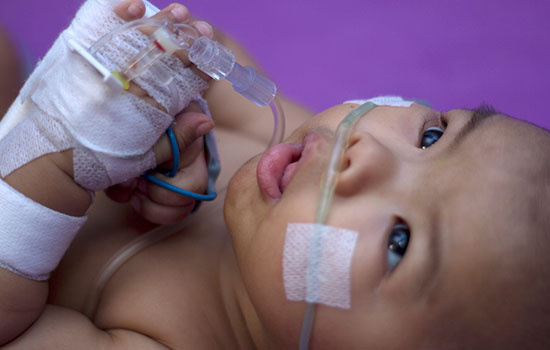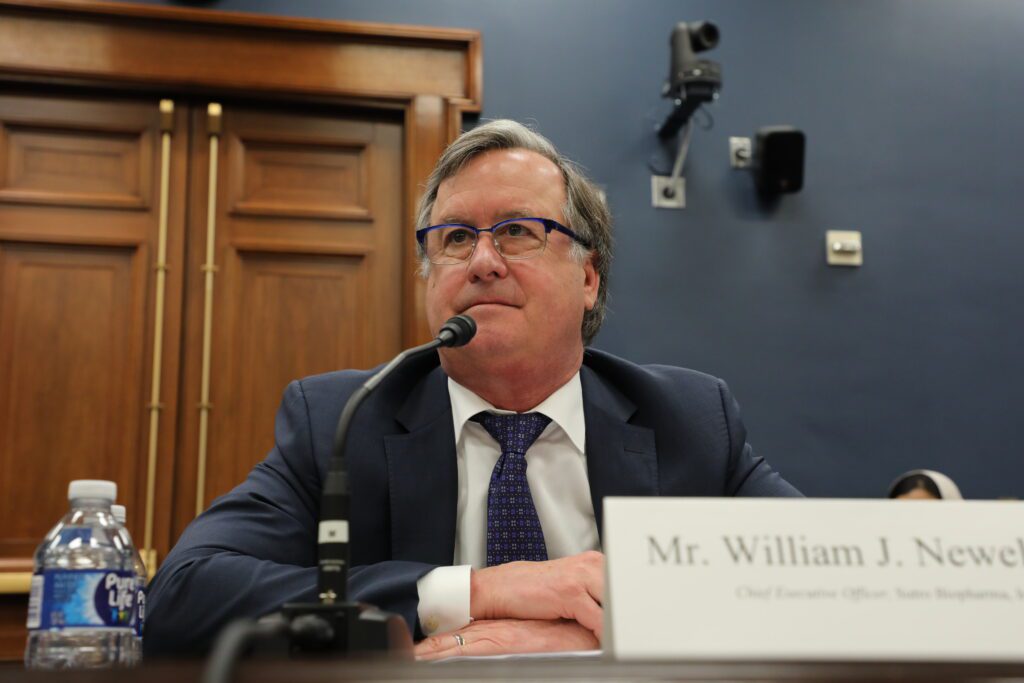The Centers for Disease Control and Prevention (CDC) added a recently approved monoclonal antibody (mAb) for respiratory syncytial virus (RSV) prevention to the list of recommended routine immunizations for infants.
The CDC Advisory Committee on Immunization Practices (ACIP) voted unanimously on August 3 to recommend adding the mAb to the list. CDC Director Dr. Mandy Cohen adopted the recommendation.
The mAb, Beyfortus (nirsevimab), is the first RSV preventive approved to protect infants in the U.S. Beyfortus will be available for infants born during or ahead of their first RSV season, and for children facing increased risk of severe RSV ahead of their second RSV season.
“This new RSV immunization provides parents with a powerful tool to protect their children against the threat of RSV,” said Dr. Cohen in a statement. “RSV is the leading cause of hospitalizations for infants and older babies at higher risk and today we have taken an important step to make this life-saving product available.”
In clinical trials, immunization reduced the risk of hospitalizations and doctor visits for RSV in infants by about 80 percent.
Beyfortus was developed by AstraZeneca and Sanofi, both members of the Biotechnology Innovation Organization (BIO).
“Today, we have turned the corner on the threat of RSV to our youngest, most vulnerable population,” said Thomas Triomphe, EVP for Vaccines at Sanofi.
Why RSV protection matters to infants
“An estimated 58,000 to 80,000 children under 5 years of age, most of them infants, are hospitalized each year nationwide due to RSV infection, with some requiring oxygen, intravenous (IV) fluids, or mechanical ventilation (a machine to help with breathing). Each year, an estimated 100 to 300 children younger than 5 years of age die due to RSV,” explains the CDC.
It’s also the most common cause of bronchiolitis in children younger than one-year-old, according to the National Institutes of Health (NIH).
Last year, a surge of RSV—coming at the same time as COVID-19 and flu season—highlighted the need for protection. Now, one year later, protection is available for infants as well as for older adults, two of the populations most vulnerable to the worst effects of RSV.
The ACIP also voted unanimously to add Beyfortus to the Vaccines for Children Program for infants without health insurance or whose parents cannot otherwise afford it.
“It really does give promise to maybe one day making RSV in infants a disease for the medical history books,” said Dr. Jose Romero, Director of the CDC’s National Center for Immunization and Respiratory Diseases (NCIRD), at the conclusion of August 3 ACIP meeting.
“This news represents a milestone for innovation in prevention and will be an important addition to our growing set of preventive solutions for RSV,” said Phyllis Arthur, BIO’s SVP of Infectious Disease and Emerging Science Policy, in an interview with Good Day BIO following the news.




